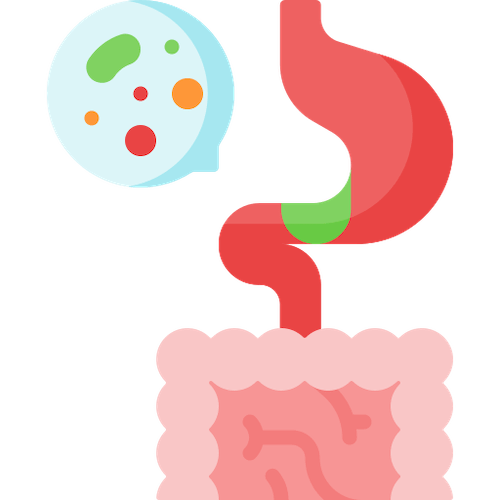
Irritable Bowel Syndrome (IBS) is one of the most common digestive conditions seen in clinics today. Though not life-threatening, IBS can significantly affect day-to-day living, from work performance to social activities. The condition often leads to bloating, abdominal discomfort and unpredictable bowel habits, which can affect physical and emotional well-being.
Studies suggest that IBS affects a sizeable portion of adults, highlighting the importance of early recognition and proactive care. While the exact cause is not fully understood, effective strategies exist to manage symptoms and regain quality of life.
At The Gastroenterology Group, Dr Webber Chan provides patient-centred care for those struggling with IBS. From proper diagnosis to tailored treatment plans, we aim to help patients move forward with clarity and confidence. You can visit our IBS service page for more details.
Irritable bowel syndrome is a functional gastrointestinal disorder, which means there are no structural abnormalities in the digestive system despite recurring symptoms. It is not life-threatening, but its chronic and unpredictable nature often disrupts daily life.
There are several recognised subtypes of IBS:
Although the exact cause remains unclear, IBS is thought to involve altered gut-brain communication, heightened intestinal sensitivity and possible changes in the gut microbiota.
Understanding your subtype can make a major difference in designing an IBS management plan that actually works. For instance, dietary changes, stress control and appropriate medical support are often tailored to each type. Recognising that IBS is real and valid is the first step toward regaining control over your health.
Managing IBS begins with understanding IBS triggers. For many patients, food is a common factor. Spicy meals, fatty foods, dairy products, caffeine and alcohol often worsen symptoms. Sometimes, even healthy foods can trigger discomfort depending on an individual’s sensitivity.
Lifestyle also plays a significant role. Stressful events, poor sleep and irregular meal times may contribute to flare-ups. This connection between the brain and the gut explains why some people notice symptoms worsening during stressful periods.
The most common IBS symptoms include:




Since IBS symptoms overlap with other digestive conditions, it is important to avoid self-diagnosis. Early consultation ensures serious conditions are ruled out while an effective plan is created to confidently manage IBS.
Diet plays a key role in IBS treatment, and one of the most researched approaches is the low FODMAP diet. This structured eating plan helps identify specific carbohydrates that may be difficult to digest, reducing bloating and discomfort. Because the diet can be restrictive, it should ideally be guided by a gastroenterologist or dietitian to avoid nutritional gaps.
Other practical steps include:
Good gut health management in Singapore is essential in keeping symptoms at bay. While diet adjustments are effective, they work best as part of a broader IBS management plan that considers lifestyle and emotional well-being.
The brain and gut are closely linked, which is why managing IBS often requires attention beyond diet. Stress can intensify symptoms, making relaxation practices an important part of managing IBS naturally. Techniques such as yoga, meditation and deep-breathing exercises can calm the nervous system and improve digestive comfort.
Physical activity also contributes to digestive health. Regular exercise supports bowel regularity, reduces stress and enhances energy levels. Sleep, often underestimated, is equally important — poor rest can worsen abdominal discomfort and bowel issues.
Incorporating these lifestyle tips for IBS can help you feel more in control of your condition. By balancing diet, stress management, and physical health, patients can create a comprehensive plan that improves daily life.
While many people manage IBS symptoms through diet and lifestyle, there are times when professional help is crucial. Seek medical attention if you experience red flag symptoms such as unexplained weight loss, blood in stools, fever, or severe, persistent abdominal pain. These may point to other conditions that require urgent evaluation.
An IBS specialist in Singapore can provide a clear diagnosis and rule out more serious issues. Consulting our gastroenterologist, Dr Webber Chan, ensures that your treatment plan is evidence-based and tailored to your specific needs.
For personalised care, visit our IBS service page to learn how professional support can help you live more comfortably.
No, IBS cannot be completely cured, but symptoms can be managed effectively with the right strategies.
Yes, many patients find relief through diet, stress reduction, and lifestyle adjustments. Medications may be used when symptoms are severe or persistent.
Certain consultations, diagnostic tests, or procedures may be claimable. It is best to check directly with your provider for details.
Living with IBS can feel overwhelming, but it does not have to control your daily life. With the right strategies, IBS management can help you reduce flare-ups, ease discomfort and regain confidence in your health.
Our gastro specialists work closely with patients to understand their unique triggers and create a plan that addresses both physical and emotional factors. His patient-centred approach ensures that you receive care tailored to your needs, rather than a one-size-fits-all treatment plan.
If you are struggling with IBS, don’t wait to self-manage indefinitely. Schedule a consultation with our IBS specialist and take the first step toward clarity, comfort and lasting relief.
Post Tags :
Share :
Book Now

The Gastroenterology Group is a group of gastroenterology and hepatology specialists focused on delivering evidence-based, personalised care.

The Gastroenterology Group is a group of gastroenterology and hepatology specialists focused on delivering evidence-based, personalised care.